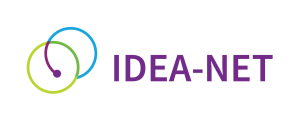University of California Los Angeles – Los Angeles, USA
In the last two years, various activities with regard to equal access/inclusion/diversity were carried out namely:
• Support and counselling for students and university staff including:
o peer learning (tutoring)
o academic advising and programs for students
o graduate and professional school mentoring for students
o scholarships for students
o research opportunities and stipends for students
o opportunities to participate in innovative science programs for students
o provide a computer lab for students
• Lectures, workshops, seminars for students, faculty and non-teaching staff
• Training courses for peer educators
• Public promotion (e.g. production of media content such as podcasts)
• Fundraising events
IDEA-net: Expanding the network of Inclusion, Diversity, Equity and Access (IDEA) practitioners in higher education through institutional capacity building
Project ref: 2022-1-NL01-KA220-HED-000089789

This project has been funded with support from the European Commission. This website reflects the views only of the authors, and the Commission cannot be held responsible for any use which may be made of the information contained therein.

